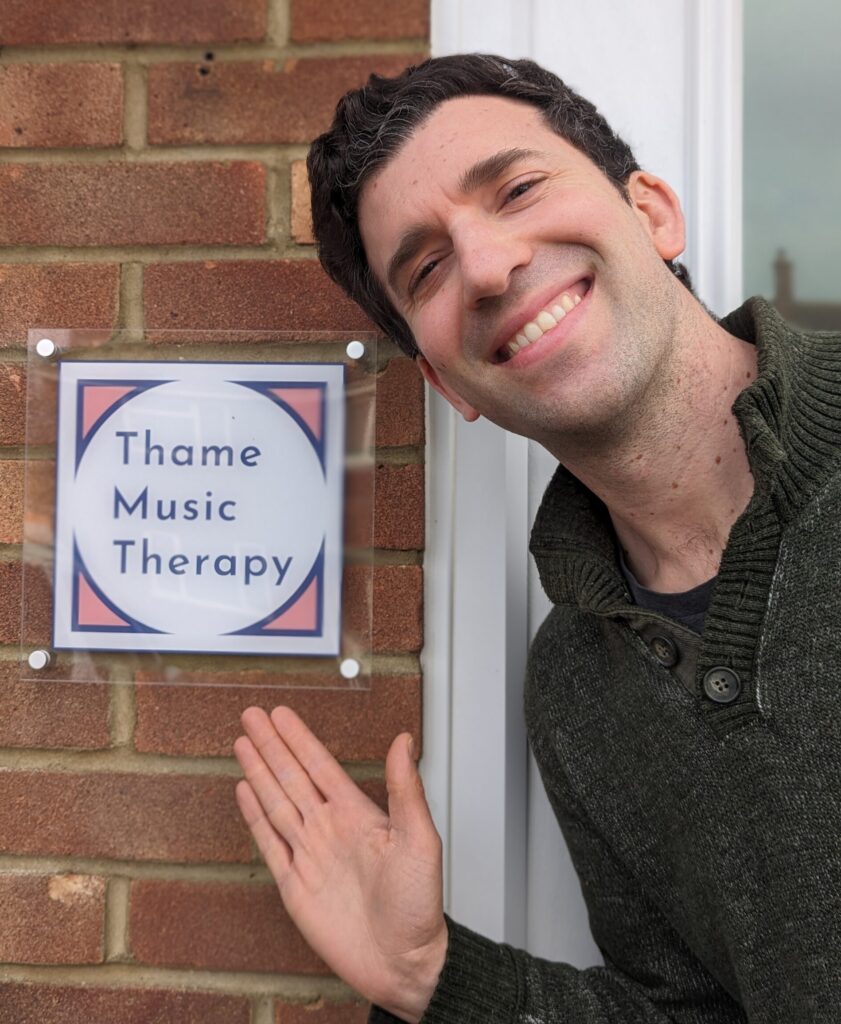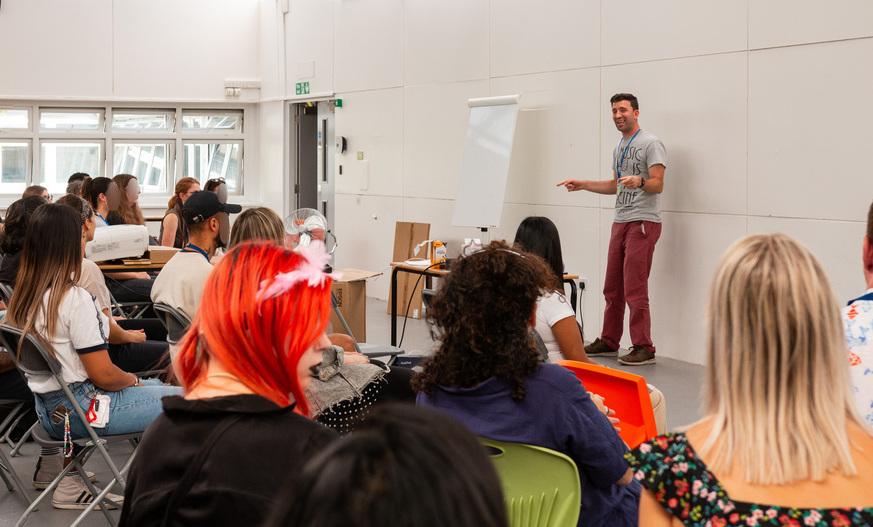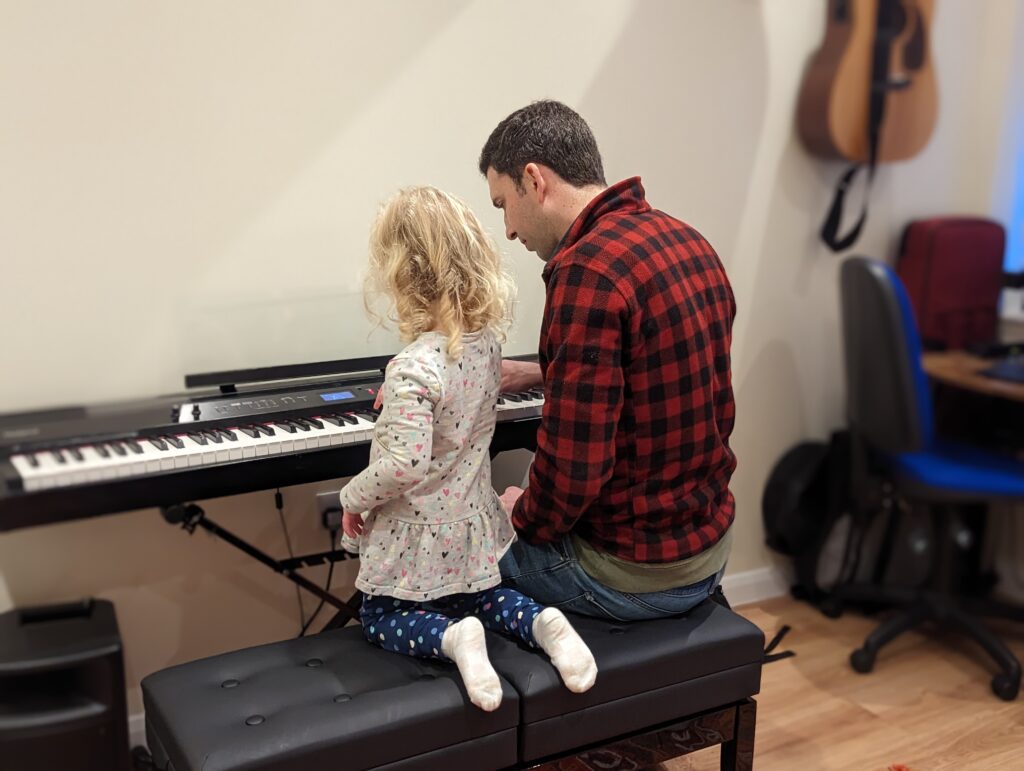To get this blog started, I thought I could say a little bit about who I am and how I came to set up Thame Music Therapy. We could go all the way back to piano lessons aged four with Miss Bitterling but I’ll save the complete autobiography for another time. So let’s begin with the after-school years…

I started out as a musician and linguist, studying music and French at Durham University from 2004-2008. This included living, studying and volunteering for a year in Montpellier in the south of France, where I was lucky enough to meet some great people and musicians at iEFAR music school and start performing live on a regular basis.
Fast forward to Durham for my final undergraduate year, I started to find out about Music Therapy thanks to an introductory module taught by renowned Music Therapist Rachel Darnley-Smith. I still had different ideas about what to do next, but the touch paper was well and truly lit.
For six years after graduating, music, education and therapeutic work were at the heart of everything I did. Now based in London, I split my working week between teaching piano, working for a children’s charity and playing in different bands. It’s hard to sum up everything that happened in that period but two experiences really stood out and encouraged me to go down the route of Music Therapy…
The mega-Band
In my long-standing teaching post at Sarah Bonnell school, then head of music James Lindsay gave me the opportunity to run their inclusive after-school band. The mega-band, as we called it, welcomed any students and teachers to play any instrument at any level. Although this approach brought a fair amount of chaos and unpredictability, it was quite simply one of the most rewarding and richest things I’ve ever done.
If someone was willing to come along, I’d find something for them to play. A new year 7 student has just started clarinet lessons? Come and join. The chemistry teacher wants to pick up the guitar again? See you there.
The performances were important markers for our development (and we were lucky enough to perform at the Royal Festival Hall and The Copperbox Arena along the way) but it was about much more than that. What was most poignant was the regular rehearsal experience of seeing students (especially those with low self-esteem and on the fringes of school life) explore different sides of their personality, make strong friendships and enjoy themselves through our musical adventures.
Youth Club piano sessions
Alongside this work, I was part of an amazing team of artists, youth workers, social workers and therapists working at a specialist children’s and youth centre in Kilburn. The Centre was funded by Coldplay and part of their ongoing support included donating an upright piano for the entrance hall. In the after-school club there, which welcomed young people who were on Child Protection and Child in Need plans, I started doing drop-in piano sessions.
Sometimes I would help young people to learn their favourite songs, sometimes I would teach a bit of technique, sometimes we would jam, sometimes we would chat. Whatever we did, it felt like the main thing I could offer was a welcoming, non-judgemental space where someone could feel supported, encouraged and where we didn’t have to talk to make a strong connection.
Putting those two experiences together, along with some inspirational people I had met connected to Music Therapy and other forms of therapy, I decided to apply for the Music Therapy masters training at the Guildhall School of Music & Drama. A rigorous application and audition process followed (more on that in another blog) and I was fortunate enough to get a place on the two year training from 2014-2016.
Part of the training included clinical placements (i.e. practising Music Therapy alongside qualified professionals) at two different SEN schools and working in a hospital on acute mental health and dementia wards. The experience was at times gruelling and the nature of work incredibly demanding but I was doing what I wanted to do and was learning a huge amount.
Autism, neurodiversity and beyond
When I subsequently qualified in 2016, I was open to jobs in a range of settings, wanting to keep broadening my experiences and get started in the profession as soon as I could. I set up a music therapy post at a mainstream secondary school, predominantly supporting students with social anxiety. At the same time I was fortunate enough to get a post at the charity Resources for Autism, where Music Therapy had been an established provision for many years.
This latter post has been at the core of my work as a practicing Music Therapist to date and has involved so many different elements: clients from the age of 3 to 63, sessions at autism units within nursery settings; work with teenagers at an SEMH secondary school; song-writing groups, toddler and parent groups, online adult community groups; training on music, play and interaction for staff, volunteers and parents.

Autism was the thread linking all of my clients in this role but personalities, strengths, challenges and needs were so diverse. Music Therapy was offering support for depression, anxiety, isolation, self-regulation, self-expression and many other things.
Whilst working at Resources for Autism, I also held short term posts within other SEN school settings, taught a handful of piano students and was part of a wonderful community song writing project with Groundswell Arts. I’ve kept playing too, as a soloist and in bands but performing and song writing have been much more on the back burner of late.
Move to Thame
For my final three years at Resources for Autism, I took on the Head of Therapies role at the charity. As well as managing a group of multi-disciplinary therapists and trainees, the role gave me insight into the more strategic elements of running the charity.
I was much more involved in fundraising and policy-making and worked to broaden the remit of therapists across our work in London and the West Midlands. It was an amazing experience but ultimately what I wanted to do was come back to being consistently in the Music Therapy room and making creative connections with people.

This desire to focus on the day-to-day practice of Music Therapy, combined with a move out of London for new family beginnings, brings us almost up to date. Here I am in Thame and I really want to channel my experiences and passion to enhance the existing network of inclusive support in Oxfordshire and Buckinghamshire.
So far, referrals have come from a whole host of people and places and that’s how I’d like it to be. I want Thame Music Therapy to be somewhere accessible for children, young people and adults alike. I have worked with Thomley, Bicester Autism/ADHD, The Red Kite Centre, The Whiteleaf Centre (Oxfordshire NHS), a range of local schools and will stay open to collaborative work.
Hopefully that gives you a bit of insight as to how Thame Music Therapy came to fruition. If you’ve made it all the way here, I’m impressed. If you have any questions, get in touch here or on Facebook. Oh and at some point I’ll fill you in on piano lessons with Miss Bitterling.
